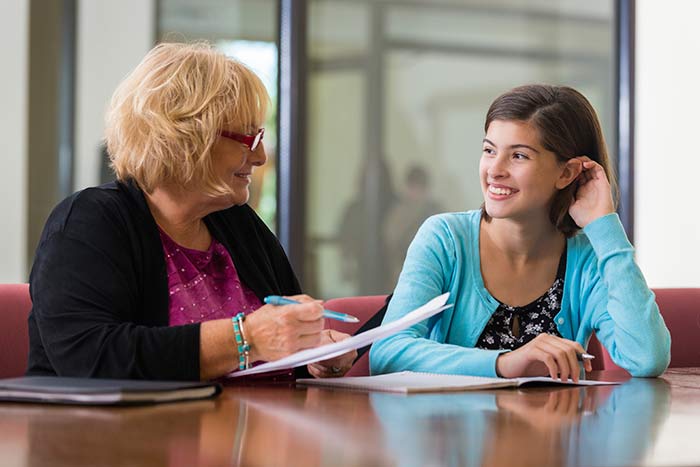
Counseling is a process in which a person (or people) speak with a mental health professional called a counselor in order to resolve personal, social, or psychological issues. There are several different types of counseling, and they all work with different types of people to reach a variety of goals.
Read on for more information about the most common types of counseling.
ADVERTISEMENT
1. Educational Counseling
Also known as school counseling, educational counseling generally takes place in K-12 public schools. An educational counselor provides support for students in multiple areas: academic, personal, and therapeutic. Educational counseling most commonly deals with issues such as problems with home life, developing effective study skills, managing stress healthily, and handling anxiety and other mental health disorders.

2. Guidance and Career Counseling
The goal of guidance and career counseling is to help individuals make decisions regarding their education or career. A guidance and career counselor can help their clients gain the skills, knowledge, and experience necessary to find success in their chosen field.

3. Marriage and Family Counseling
In marriage and family counseling, it’s common for a couple or an entire family to speak to a counselor together. The counselor sometimes facilitates effective communication between partners and family members. Other sessions may be focused on teaching effective communication and conflict resolution skills. Marriage counseling can save marriages, but it’s also recommended for all married couples to arm them with the tools needed for a successful marriage. Family counseling can help families work through trauma and difficult relationships together.

4. Mental Health Counseling
Mental health counseling uses many different techniques to help people manage mental health disorders or struggles with thoughts, feelings, and behaviors. Counseling can also be helpful for those who simply need support or an unbiased professional to speak to about their feelings. Counselors differ from other types of mental health professionals because they cannot always diagnose disorders (regulations vary from state to state) and they cannot prescribe medication.
ADVERTISEMENT

5. Rehabilitation Counseling
The aim of rehabilitation counseling is to help people who live with physical and emotional disabilities to gain autonomy and to be able to live more independently. A rehabilitation counselor might help a person with a disability by evaluating medical reports, providing job skills training, assisting in job placement, and giving additional guidance.

6. Substance Use Counseling
A substance abuse counselor works with people who have a chemical dependency on alcohol or drugs. They can also work with people who fear that they may develop an addiction, as well as the family members of people with addictions. In substance abuse counseling, the goal is to help clients overcome their dependency and become more self-sufficient overall.

Main Takeaways
Counseling isn’t limited to talking about mental health issues, although it’s often portrayed that way. In addition to mental health counseling, there’s also educational counseling, guidance and career counseling, marriage and family counseling, rehabilitation counseling, and substance abuse counseling. Regardless of what you’re going through in life, there’s a good chance that counseling would benefit you in one way or another.
ADVERTISEMENT











